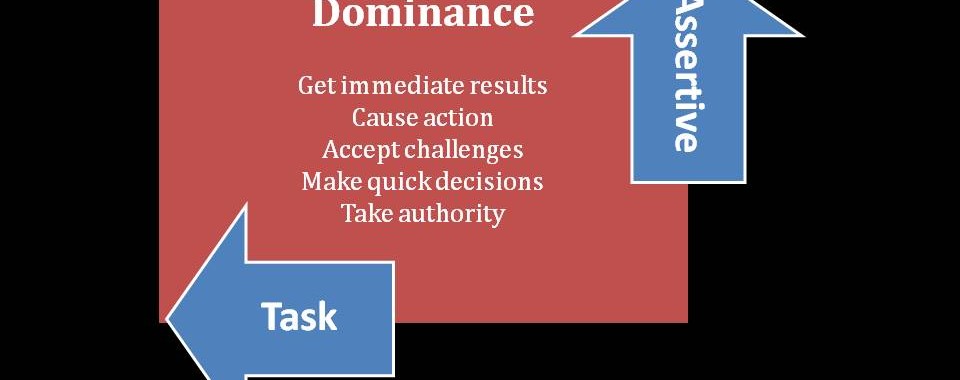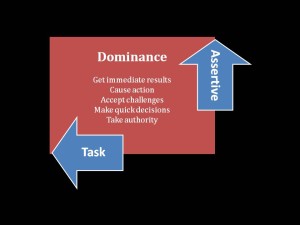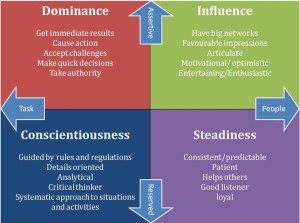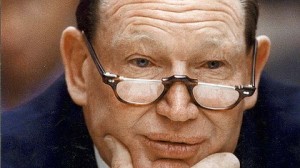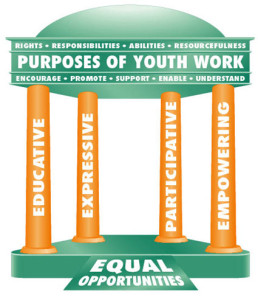Tag Archives: empower
A couple of weeks ago our Executive Director had the privilege of speaking with Wolfgang Vachon of C2Y Podcast. In this cast we spent much of our time talking about the need for youth work to enter the online realm as it is where many of our young people can be found. This truly international discussion (Wolfgang is from Toronto, Canada and we are based in Melbourne, Australia) is a prime example of the opportunities the internet has for doing youth work and providing training opportunities to the youth sector.
Have a listen to the C2Y Podcast and share it with your friends in the sector.
Accountability through ongoing learning
Throughout my career I have met hundreds if not thousands of youth workers with varying levels of expertise, varying knowledge bases and within differing organisations. Whether they are eighteen or eighty (yes I have met an eighty year old youth worker) they all brought their understanding and experiences to their practice. The ones who I respected the most were the ones who had the guts to say they didn’t know something and asked how to do it. Whether it was looking at a new theory and not knowing how to translate it to theory or developing a program and not knowing the best evaluation methods recognising your limitations and seeking to gain education to fix this is the mark of a true Ultimate Youth Worker.
Recently I have met a handful of youth worker’s who have spent more than a decade in the field. These youth workers are in positions of leadership throughout the sector. They also have a limited understanding of youth work basics. They do not hold qualifications and believe that their knowledge level is ok. These workers are not held accountable for their practice by anyone. Because of their lack of accountability these youth workers have not been required to develop their skillset, their practice or their ethics.
One such worker stated to me that after thirty years in the field she did not know how to evaluate a program properly. She followed that comment up by saying that it was ok because she would leave program evaluation to her staff. I don’t believe that you need to know everything as a supervisor but you should have a basic level of understanding. This worker did not see her deficit as needing to be addressed. If she had stated that she wanted to know how to evaluate a program or that she was looking into some articles about evaluation this post may not have been written. We need to aim for excellence in youth work. We owe it to our clients, coleagues and community. Anything else is slack.
The fact is it is easy to fix. I do not know everything. I am the first to admit it. The rest of the team hear at Ultimate Youth Worker do not hold the ticket of all knowledge. Together we are not bad but we still don’t know it all. But we do ask questions, we read widely and attend every piece of training that we possibly can. The first step is to identify where there is a deficit in your practice. The second step is to seek a way to fix this deficit and to be a sponge of any knowledge you can find to aid you in this mission.
 |
| A way to get your professional learnings right on your phone, tablet or computer |
Until recently I had never written a social media marketing plan. I spoke to friends and colleaguews in the communications field. I read articles and blogposts and anything else I could get my hands on. I spent endless nights slaving over the keyboard and eventually I wrote my first social media marketing plan. I have also been working with a young youth worker who is developing his first project proposal. When we first spoke about what it would entail before he could open the doors to his first project he almost fell off his chair. The task seemed so big. It was unknown. A few chats and a couple of articles later and the task didn’t seem to scary. Knowledge is a powerful tool.
The other side to this coin is to have someone who will keep you accountable to ongoing learning. If you are blessed (or cursed as I may be) you may have multiple people who get you to think about multiple areas of your practice. The point is you never become an expert… you just become a life long learner. The education of an Ultimate Youth Worker is a life long commitment and a duty to be fulfilled. But more on that next week.
If you haven’t yet sign up for our newsletter to find out all the goings on at Ultimate Youth Worker. The form at the top right of this page is all you need to do.
You can sign up to have our blog posts sent straight to your email by adding your email to the subscribe button on your right.
You can also leave us a comment below or post a comment on facebook and twitter.
Observe the D in DISC for youth worker’s
Last Thursday we began a Series looking at the DISC behavioural profiling system and discussed how DISC can help us to develop a behavioural lens to inform how we work with young people, our colleagues and other networks. Using the lens of DISC will help you understand peoples strengths and weaknesses, how to speak to them in a way that they will understand and warm to. This week we continue the series with an overview of the DOMINANCE behavioural style.
We are going to start with DOMINANCE as it is probably the easiest behaviour to spot (and it is my dominant behavioural style). You know the type. The jerk, the sore loser, Mrs self-centred, the poor listener, the steam roller, the irritated one or perhaps even Mr opinionated. All of these negative adjectives are often linked to a person who is exhibiting a DOMINANCEbehavioural trait. On the other hand you have probably seen their positive behaviours as well. They are the determined people, the strong willed, they get results when others struggle, they are fast thinker and even faster talkers, they take risks and get rewards. THEY GET THINGS DONE. If they were a slogan they would be Nike: just do it.
A person with a high level of DOMINANCE in their behaviour will often speak in a way that about three quarters of the population struggle with. They tell rather than ask. They talk more than they listen. They may be seen as pushy or even rude. They don’t beat around the bush and seek quick communication. They speak with an authoritative tone of control to assert their POWER over the situation. They are direct and forceful in their communication and impatient with pleasantries and meaningless pomp. They are focused on task and expect results. They are willing to get into trouble if it means getting thing things done in a timely fashion. People who have a dominance streak can rely on gut feelings over data and to many they are seen as mavericks.
Many people are scared of a confrontation with a high D. But that is the best way to deal with one. High D’s are blunt and demanding, they lack sensitivity, empathy and care even less about social interaction… They respect people who show the same qualities. So how do we work with these people when they seem so entrenched???
Here are our top seven tips for working with people with DOMINANCE behaviour traits:
-
Communicate briefly and as to the point as you can. If you are writing an email and its more than four sentences kill it or cut it down. If you call them and it lasts much more than a minute they will start to wrap it up. If you are chatting with them… Ha Ha I made a funny. They would never chat.
-
Respect their need for independence. Do not impose upon them unnecessarily. Use your role power sparingly if you have it and if you don’t have any then only stand up against them when it is absolutely required.
-
Be clear about rules and expectations. Whether in a team meeting or a group be clear about what is and is not allowed. Be unmistakable about the outcomes expected and how to achieve them.
-
Let them take the lead. They usually have innate leadership ability so where possible let them have it. They will probably try to take it anyway.
-
Show your competence. High D’s respect clarity and results. If you stuff around and then do not achieve you are painting a sign on your back. Do your tasks, lead the group whatever you do; do it to the best of your ability.
-
Stick to the topic. One thought at a time and if possible no sub points. Do not go off on tangents and for the love of God do not do a Grandpa Simpson.
-
Show independence. Stand up for what you believe and do not be afraid to express your opinion. Be more forceful. You will think you are arguing. They will think that they are finally having a worthy conversation.
Here are just a few people you might have seen on a tv that have DOMINANCE in their behavioural style.
Donald Trump
Hillary Clinton
General Patton
Margaret Thatcher
Kerry Packer (Australian Businessman)
Russell Crowe (Actor)
Dealing with our God complex!!!
I remember not long after I got married about 5 years into my youth work career being out every other night and working to fix the problems of every young person who came through my circle of influence. I also remember the conversation I had with my wife where she told me I needed to deal with my God complex!!!
I didn’t think I had a God complex! I was just the local youth worker. I was the one who they looked to for advice. I was the one they could come to to deal with their issues. I was the one who helped the through the storms and stresses of youth. There wasn’t another youth worker in the area and I was the first point of call for many of the young people.
Many youth workers, particularly early in their career, strive to do everything they can for the young people they work with. This is not wrong as some would have you believe. A little misguided perhaps, but not wrong. Where this misguided focus can tend to become trouble is when youth workers forget that they do not know everything. Sometimes we get in so deep that we forget to advocate, refer and empower.
Our God complex comes to the fore when we overstep our ability. As youth workers we aren’t psychologists, accountants, doctors or lawyers. we may have some understanding of other areas of practice, but for the most part as youth workers we know about young people and that is where our practice should stay. When our passion makes us over reach we become detrimental to our young people and bring our profession into disrepute.
KNOW YOUR LIMITS! When we know what we are able to do we can provide a great service to our young people. When we know our limits we can focus our ongoing professional development to expand our abilities. When we know our limits we can work with our colleagues from other disciplines comfortable in our own abilities. Most of all when we know our limits we can live a balanced life without the God complex.


